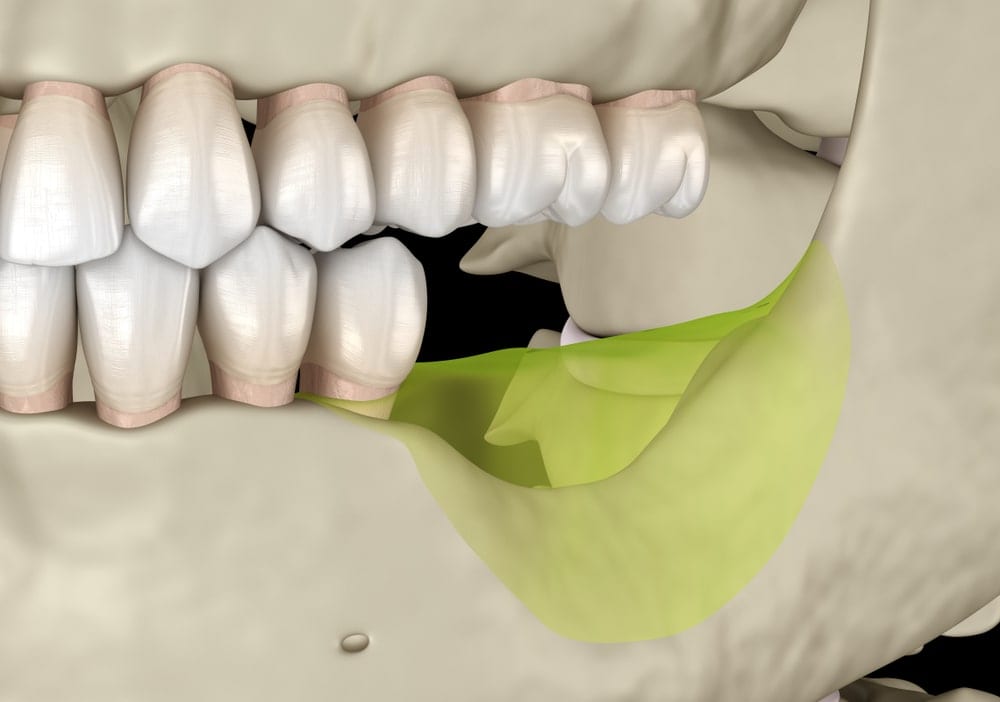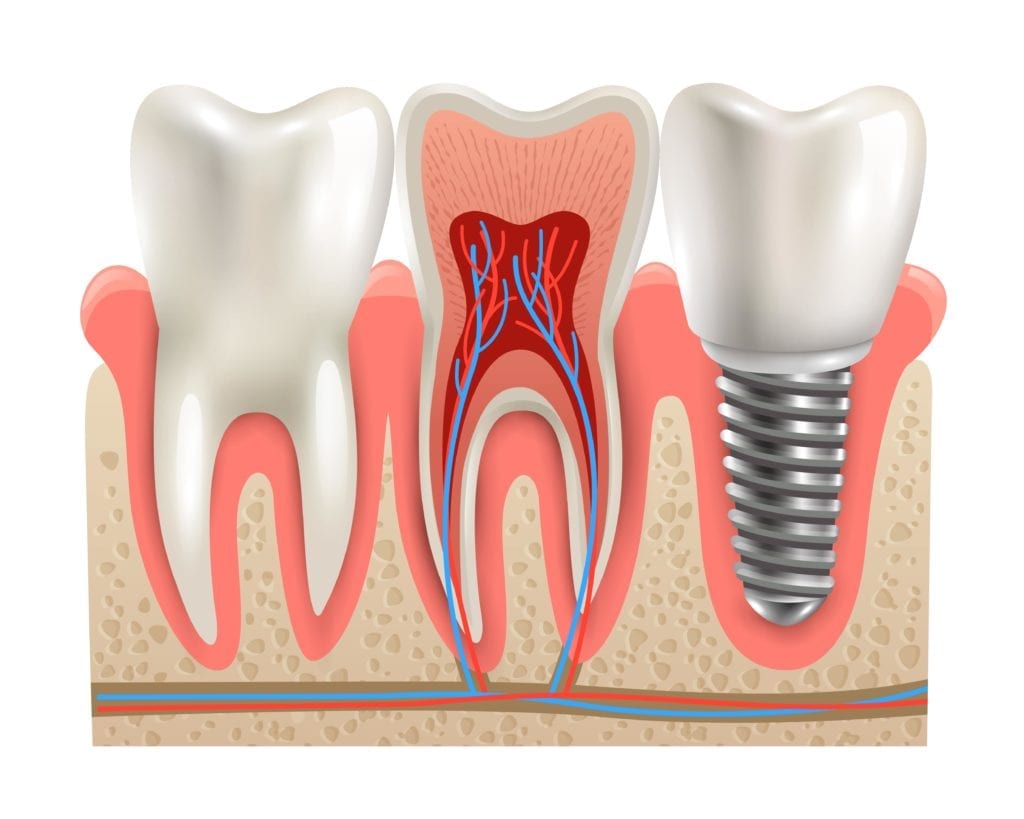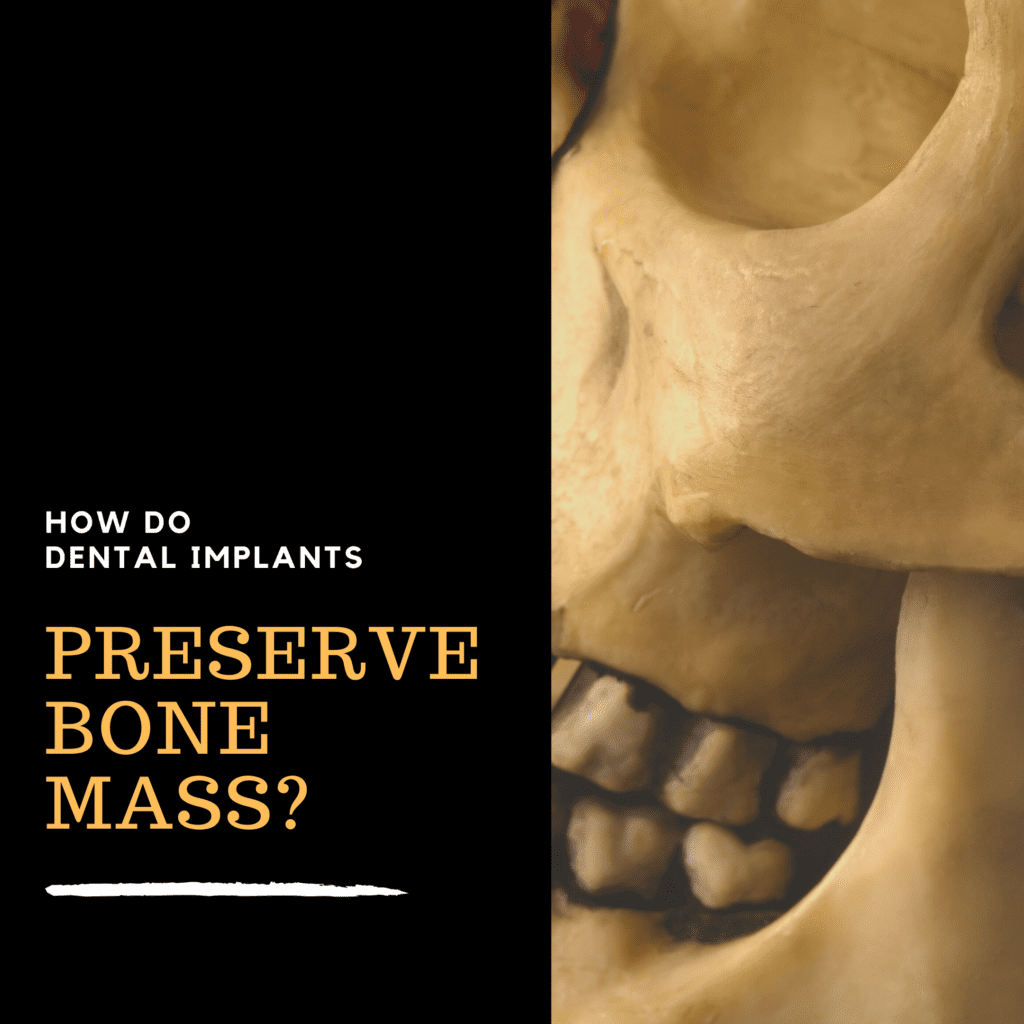When considering tooth replacement options for one or more missing teeth, dental implants are an option that comes up frequently. One reason why dental implants tend to be recommended to replace missing teeth is because they have the ability to preserve bone mass. Many people wonder what this means and how this is possible. Luckily, there is a scientific explanation for the phenomenon of dental implants.

For starters, dental implants preserve bone mass in the jaw bone by preventing a process called bone resorption, in which the body essentially takes bone from the jaw and distributes it to other areas in the body. Bone resorption generally begins around six months after a tooth is lost and will continue until the bone has become severely deteriorated. As time passes, bone resoprtion can eventually cause the shape of the face to change and can even cause the loss of additional teeth.
At this point, you may be wondering why bone resorption occurs in the first place. After all, it doesn’t make sense to most people why the body takes bone from the jaw and deposits it elsewhere in the body. In order to understand why bone resorption occurs, we will first need to look at how natural teeth function and how this relates to jawbone health.
Every natural tooth is composed of a crown and a root. The tooth crown is the visible portion of the tooth, while the root is the portion of the tooth that lies below the gums. The root is also the part of the tooth that affects jawbone health. You see, everytime you eat something the forces of biting and chewing pass through the tooth’s crown and are transmitted down through the root where they are then absorbed by the jaw bone. This force is what tells the body that bone mass is needed within the jawbone, which prevents bone resorption.
However when a natural tooth is lost, there is no transfer of force between the tooth and the jawbone. This absence of force signals to the body that bone mass is no longer needed in the jawbone. As a result, the body responds by distributing this bone mass to other locations in the body that are lacking in bone mass.

Bone resorption can also be prevented by having dental implants placed. This is because dental implants are artificial tooth roots that are placed in the jawbone. Once an implant heals, an implant-supported dental crown can be placed. The implant-supported crown then acts as a natural tooth crown would in that it allows the forces of biting and chewing to be passed down into the dental implant or artificial tooth root. Since the implant is fused with the jawbone, this means that the jawbone is also absorbing the necessary force to maintain its bone mass.
Other tooth replacement options like dentures and bridges only restore the missing tooth and not the entire tooth structure. Ultimately this means that while they can restore the look and function of a missing tooth, they cannot maintain the health of the jawbone. This is due to the simple fact that there is no pathway between the prosthetic and jawbone that can transfer the force of chewing to stimulate the jawbone. Without this stimulation, the jawbone will slowly deteriorate, causing the face to change shape and requiring the replacement of either a bridge or denture.
As you can see, dental implants offer a highly effective option for replacing missing teeth due to their ability to preserve bone mass by stimulating the jawbone in order to prevent bone resorption. Out of all the options for replacing missing teeth, dental implants are the only option that uses artificial tooth roots in order to provide the jawbone with the necessary stimulation.

Dr. Admar holds dual certificates — a Bachelor of Dental Surgery (BDS) in 2010 from India and a Doctor of Dental Surgery (DDS) in 2014 from Canada. He is now a full time practicing dentist in Kamloops where he provides a variety of services. Dr. Admar spends hundreds of hours in continued dental education to stay up to date in cosmetic and implant dentistry and he has achieved several advanced qualifications.


